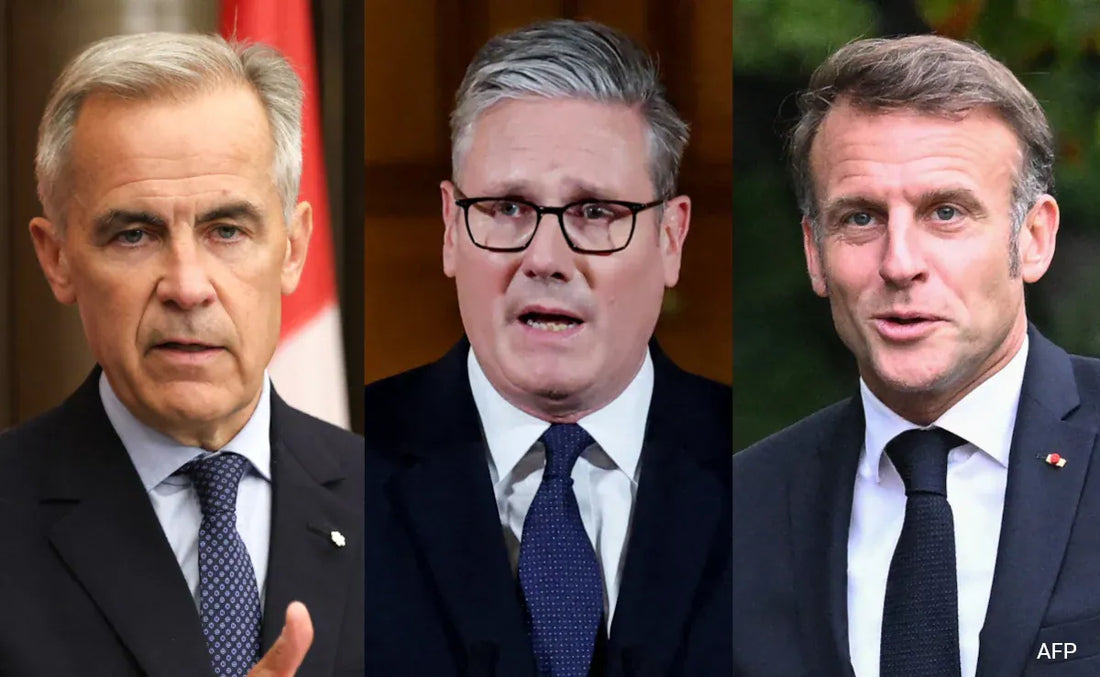Canada Announces Recognition of Palestine, Joining UK and France at Upcoming UN General Assembly

In a significant change in foreign policy, Canada has declared its intention to officially recognize the State of Palestine during the upcoming United Nations General Assembly in September. Prime Minister Mark Carney made the announcement on Wednesday, aligning Canada with recent pledges from the United Kingdom and France to support Palestinian statehood.
This decision comes amid a severe humanitarian crisis in Palestine, particularly in Gaza, where conditions have deteriorated due to starvation and blocked aid. Prime Minister Carney criticized Israel for obstructing international aid efforts, describing the situation as unacceptable. His comments reflect a growing demand in Western countries for a political solution based on the two-state framework.
The United Kingdom's decision, revealed a day earlier by Prime Minister Keir Starmer, is contingent upon a ceasefire and a cessation of Israel's annexation activities in the West Bank. France and Malta have also joined the movement supporting full recognition of Palestinian statehood, potentially reshaping diplomatic dynamics in the region.
Israel has voiced strong opposition to Canada's announcement. Iddo Moed, the Israeli ambassador to Canada, accused Ottawa of "rewarding terrorists," while Israeli Prime Minister Benjamin Netanyahu criticized the UK's decision, saying that "Starmer rewards Hamas’s monstrous terrorism and punishes its victims."
At present, Palestine is designated as a "Permanent Observer State" at the United Nations, which permits participation in discussions but not voting rights on resolutions. Achieving full membership requires a recommendation from the Security Council and a two-thirds majority vote in the General Assembly. A US veto thwarted Palestine’s last attempt at membership in April 2024.
As of March 2025, 147 out of the 193 UN member states recognize Palestine as an independent nation. This recognition primarily comes from African, Asian, and Middle Eastern countries, including India. However, nations like the United States, Japan, South Korea, and Australia continue to withhold recognition.
In Europe, support for Palestinian recognition is increasing. Spain, Norway, and Ireland recognized Palestine in 2024, and now the UK and France have followed. Belgium and Germany remain undecided. Canada's recent decision makes it the third G7 country to endorse Palestinian statehood, amplifying diplomatic pressure on Israel and suggesting a potential shift in Western policy.
Britain's recognition holds particular significance due to its historical role in the Israeli-Palestinian conflict. The 1917 Balfour Declaration, where the UK backed a national home for the Jewish people in Palestine, is often seen by Palestinians as the beginning of their displacement. The UK's recent recognition could be perceived as an effort to address historical responsibilities while engaging in contemporary diplomacy.
This wave of recognition risks isolating the United States, the only permanent member of the UN Security Council that has not yet supported Palestinian statehood. Such isolation could undermine Washington’s position as a neutral party in the peace process.
The 80th session of the United Nations General Assembly is set to begin on September 9 in New York. With more countries expected to offer recognition in the coming weeks, Palestine's diplomatic status could see substantial improvement, reigniting discussions on the two-state solution and the international community's role in resolving the Middle East conflict.



















